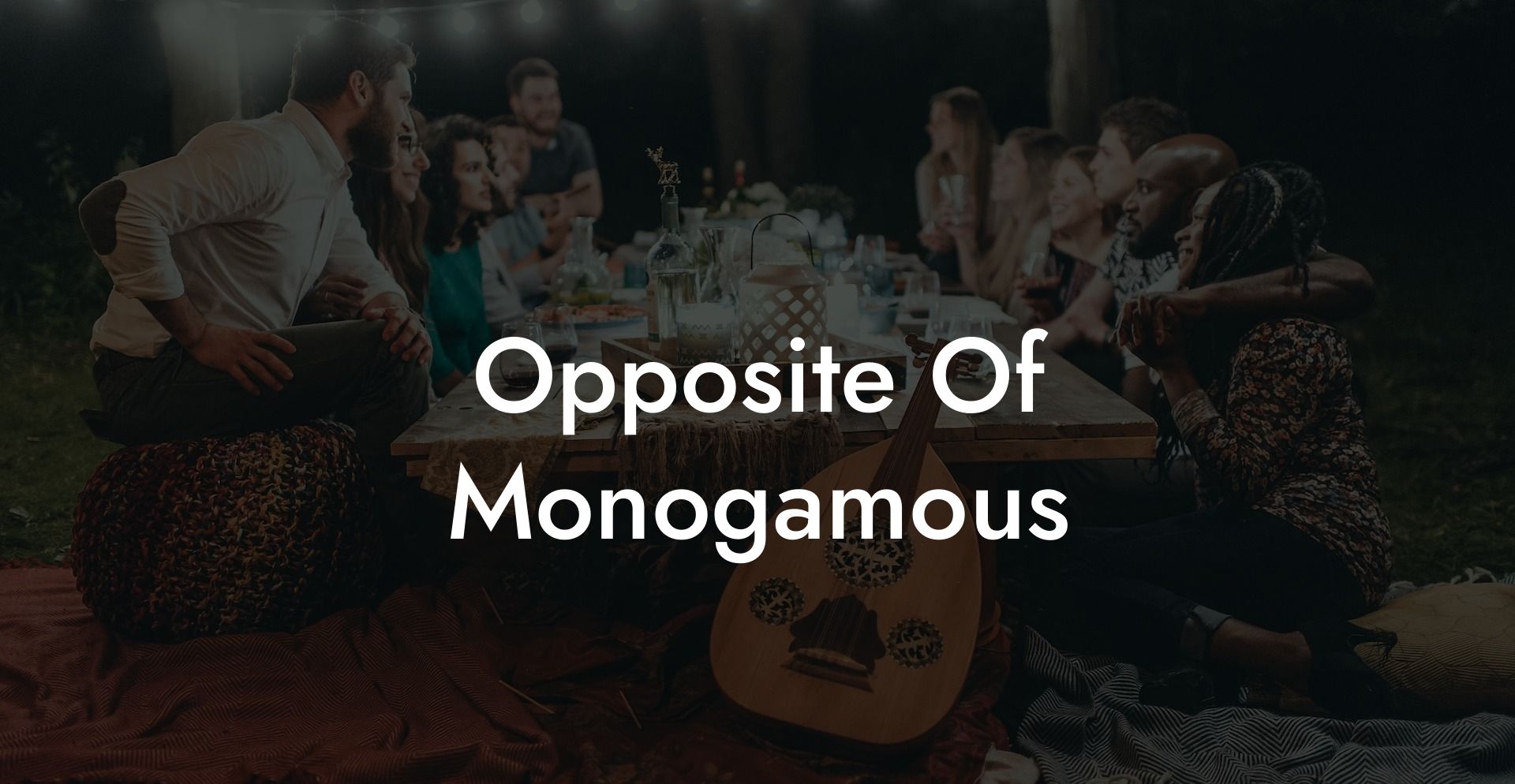Monogamy has long been the dominant relationship structure in many societies and cultures; however, it's not the only way to connect with others and build meaningful, committed partnerships. Increasingly, people are exploring and embracing alternative models of relationships that lie on the opposite end of the spectrum: non-monogamy. But, what exactly is the opposite of monogamous, and what does it entail? In this article, we'll delve into the world of non-monogamous relationships, seeking to understand the diversity that exists within this realm, and sharing real-life examples. So, keep reading, share your thoughts, and explore other pieces on The Monogamy Experiment!
Opposite Of Monogamous Table of Contents
1. Understanding Non-Monogamy
Non-monogamy, as the term suggests, is any type of relationship that does not involve the exclusivity of romantic or intimate interactions with just one person. It encompasses a wide variety of relationship styles and structures, each with its own unique set of protocols, expectations, and guidelines. When discussing non-monogamous relationships, it is essential to remember that these partnerships are not inherently better or worse than monogamous ones. Instead, they present diverse opportunities for individuals to form meaningful connections with others in a manner that resonates with them most authentically.
2. Types of Non-Monogamous Relationships
There are several different types of non-monogamous relationships, and while some may share similarities, they are not interchangeable:
a. Open relationships
In this setup, partners agree to engage in sexual or romantic relationships with others while maintaining their primary partnership. The openness between partners can vary, with some requiring full disclosure and others preferring a "don't ask, don't tell" approach.
b. Swinging
This involves established couples consensually exchanging partners for sexual encounters, often at organized events or "swingers" parties. Swinging differs from open relationships in that there is usually less emotional attachment to outside partners and the focus is primarily on sexual exploration.
c. Polyamory
Polyamory is the practice of having multiple romantic and emotional relationships with the consent of all parties involved. Partners may have numerous "primary" relationships, or a combination of primary and secondary connections, each requiring a level of commitment and emotional investment.
d. Relationship Anarchy
A more radical approach to non-monogamy, relationship anarchists reject the concept of relationship hierarchies and embrace the idea that each relationship can evolve organically to fit the needs and desires of those involved. This means that no one connection should take precedence or dictate the shape of another.
Opposite Of Monogamous Example
Let's consider an example of a polyamorous relationship. This could involve a "triad," where three people are all in a relationship together, each person committed to and caring for the other two. Alternatively, it could consist of a "V," in which one person is at the center, maintaining separate relationships with two other individuals who may or may not have a romantic connection of their own. In either case, the key element is open, transparent communication and a clear understanding of the expectations and boundaries within the relationships.
In conclusion, the opposite of monogamous relationships can be found in the diverse world of non-monogamy, which presents numerous experiences and opportunities for connection. As you explore these unique relationship styles, remember that no single structure is better or inferior to another. It's about finding the arrangement that works best for you and your partners, encouraging open communication, trust, and growth. We hope this article has shed some light on the variety of non-monogamous relationships out there and inspired you to consider the possibilities. Keep exploring the guides on The Monogamy Experiment, and don't forget to share this post with friends intrigued by non-monogamous partnerships!













